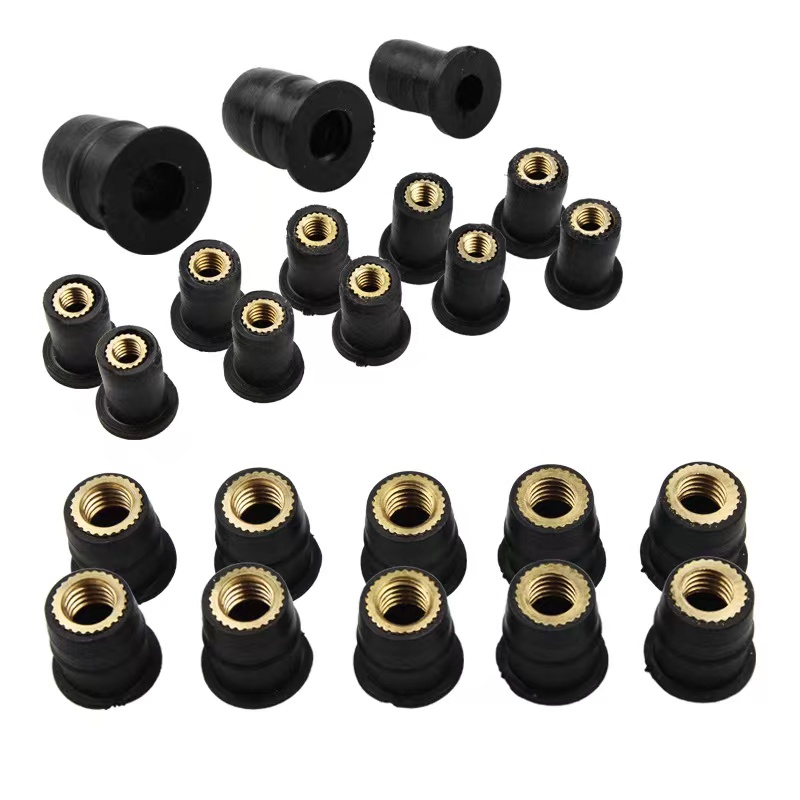Stanyl in the Use of Gears, Bearings and Bearing Housings
Stanyl is a high-performance polyamide known for its exceptional crystallinity and outstanding mechanical properties. Its unique structure gives it superior strength and durability, making it an ideal material for demanding applications such as gears, bearings, and bearing housings. One of the key advantages of Stanyl is its excellent fatigue resistance, which outperforms materials like PPA, PPS, and PA66. This makes it particularly suitable for components that undergo repeated stress, such as gears and zippers. Additionally, Stanyl exhibits remarkable wear resistance, far surpassing other engineering plastics like PA66 and POM. This is largely due to its higher PV (pressure-velocity) rating, allowing it to perform well under high pressure or high-speed conditions. Modified versions of Stanyl, including both non-reinforced and glass-fiber reinforced types, offer even better wear resistance. The material also has self-lubricating properties, making it an excellent choice for sliding parts such as guide rods, zippers, and thrust washers. Its ability to maintain hardness at elevated temperatures further enhances its performance in high-temperature environments. In terms of gear applications, Stanyl PA46 offers several advantages. It provides high resistance, excellent fatigue strength, good wear resistance, and strong tooth integrity. As operating temperatures rise, the strength of Stanyl PA46 becomes increasingly important. Its high hardness, combined with excellent fatigue and impact resistance, allows engineers to replace metal components with Stanyl in many cases. Gears made from PA46 operate more smoothly and produce less noise. In many instances, switching to Stanyl can also reduce overall product costs and improve manufacturing efficiency. For bearings and bearing housings, Stanyl offers significant benefits. It maintains high hardness and creep resistance at elevated temperatures, and it is highly resistant to various lubricants, including ATF, TAF, and EP oils. Its excellent corrosion resistance, fatigue strength, and high PV rating make it a preferred material for bearing systems. Designers can use Stanyl in applications where high PV limits, high local temperatures, and long service life are required. A simple test demonstrates the superior performance of Stanyl in bearing sleeves. When comparing two sleeves—one made of PA66 and the other of Stanyl (both 25% glass reinforced)—and subjecting them to high temperatures (up to 200°C), the PA66 sleeve showed noticeable deformation, while the Stanyl sleeve retained its dimensional stability.
Recommend to Friends | Comments | Close Window
| Bearing Related Knowledge |
| Select and use TIMKEN bearings, pay attention to common issues with NTN bearings, and check specifications. Think about the combination of bearing life and optimal clearance control for spindle bearings. Understand the oil rolling bearing problems. |
This article links to http:// Please indicate the bearing network http://
Previous: The importance of the smoothness of NTN bearings and the smooth effect of the next section: The new application of different types of self-lubricating bearings
Manufactured from themoplastic EPDM and Brass, these clever toggle fasteners have numerous applications. Most often used to secure hardware and other objects to thin steel, aluminium, plywood or fibreglass surfaces where there is no access to the cavity.
With a captive Brass Nut, the toggle expands within the cavity as it is tightened. The rubber-like compound provides a seal against water and salt penetration while insulating against vibration.
Available in a range of sizes to suit many applications onboard your vessel.
Sold individually, with automatic discounts for purchases over 1000 units.
Note that the nuts have metric threads and the bolt is not supplied.
M3,M4,M5,M6,M8,M10 & M12 also available

Rubber Nut,Rubber Nutsert,Expanding Rubber Nut,Rubber Anchor Nut
Taizhou Hongchuang Hardware Co., Ltd. , https://www.taizhouhongchuang.com